Ms. Sheetal Sharma who will be graduating from Bournemouth University with a Ph.D. on November 10th has been awarded Bournemouth University’s The Postgraduate Research Prize. This prize is for the postgraduate student whose achievement is deemed by the Vice-Chancellor to have been most outstanding in their time at BU.
Sheetal stood out as a Ph.D. student as her maternal health research project in Nepal resulted in several many publications [1-6], some in very prestigious journals such as BMC Pregnancy & Childbirth [4] and PLOSOne [5] . She won the best poster prize at the international GLOW conference in Birmingham in 2013 with the poster presentation ‘Getting women to care in Nepal: A Difference in Difference analysis of a health promotion intervention’. She won a SBSP travel scholarship to present a poster at the 8th European Congress on Tropical Medicine & International Health in 2013 in Denmark. Sheetal’s abstract of the poster was also officially published [7].
Sheetal presented at the Science in Society conference (SiS) at Berkeley University in November 2012 where she received a Graduate Scholar Award. In addition, she won a Santander travel scholarships for £5,000 to learn about research at the University of Buenos Aires, Institute for Clinical Effectiveness & Health Policy (Argentina) and at the University of Barcelona in Spain. This scholarship resulted in a great publication with the world-famous researcher in reproductive health care prof. Jose Belizan as co-author. Sheetal also presented her work at the first ever national health promotion conference in Nepal.
Sheetal also had less academic achievements as she won the BU photo competition at the 2014 PGR conference with the photo in this blog. 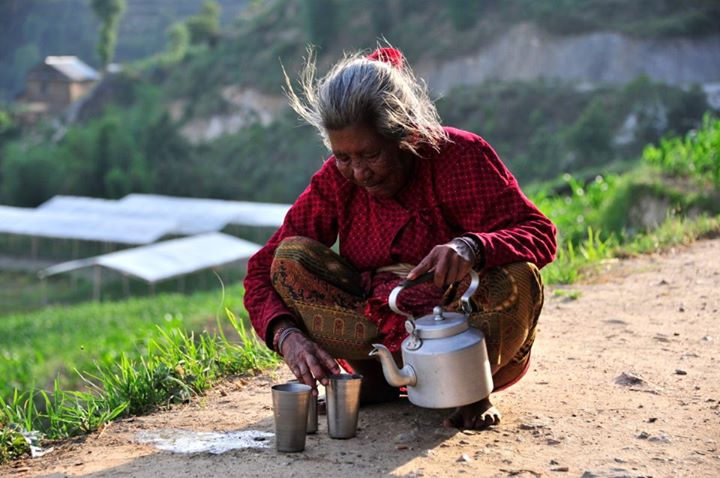
Sheetal was also actively involved as a student representative in the Faculty of Health & Social Sciences as well as in the Graduate School. She even found time to join the editorial board of the newly formed Journal of Asian Midwives.
Over the past five years Sheetal has had many mentions on this BU research blog as one of BU’s most prolific publishing PhD students.
As supervisors and co-authors we are proud of her!
Dr. Catherine Angell, Prof. Vanora Hundley & Prof. Edwin van Teijlingen (CMMPH)
BU Visiting Professor Padam Simkhada, Liverpool John Moores University
Dr. Elisa Sicuri, Assistant Research Professor at ISGlobal, Spain
Prof. Jose Belizan, University of Buenos Aires, Argentina
References to published work by Sheetal Sharma:
- Joshi, R., Sharma, S., van Teijlingen, E. (2013) Improving neonatal health in Nepal: Major challenges to achieving Millennium Development Goal 4, Health Science Journal 7(3): 247-257. http://www.hsj.gr/index.files/Page1421.htm
- Sharma, S., Joshi, P., van Teijlingen, E. (2015) ‘Nepenglish’ or ‘Nepali English’: A new version of English? Asian Journal of Humanities & Social Sciences 4(2): 188-193. www.ajssh.leena-luna.co.jp/AJSSHPDFs/Vol.4%282%29/AJSSH2015%284.2-21%29.pdf
- Simkhada, B., Sharma, S., van Teijlingen, E., Silwal, RC, Simkhada, P. (2015) Exploring Maternal Mortality Reduction. In: Wasti, SP, Simkhada, PP, van Teijlingen, E. (Eds.) The Dynamics of Health in Nepal, Kathmandu: Social Science Baha & Himal Books: 95-121.
- Sharma, S., van Teijlingen, E., Belizán, J.M., Hundley, V., Simkhada, P., Sicuri, E. (2016) Measuring What Works: An impact evaluation of women’s groups on maternal health uptake in rural Nepal, PLOS One 11(5): e0155144 http://journals.plos.org/plosone/article?id=10.1371%2Fjournal.pone.0155144
- Sharma, S., van Teijlingen, E., Hundley, V., Angell, C., Simkhada, P. (2016) Dirty and 40 days in the wilderness: Eliciting childbirth and postnatal cultural practices and beliefs in Nepal BMC Pregnancy & Childbirth 16: 147 https://bmcpregnancychildbirth.biomedcentral.com/articles/10.1186/s12884-016-0938-4
- Sharma, S, Simkhada, P, Hundley, V, van Teijlingen E., Stephens, J, Silwal, RC, Angell, C (2017) Evaluating a Community Maternal Health Programme: Lessons Learnt. Journal Asian Midwives 4(1):3–20.
- Sharma, S., van Teijlingen, E., Hundley, V., Stephens J., Simkhada, P., Angell, C., Sicuri, E., Belizan, J.M. (2013) Mixed-methods evaluation of a maternity care intervention in rural Nepal: measuring what works, Poster P.2.3.004 (A), Tropical Medicine & International Health 18 (Suppl. 1): 108–231.
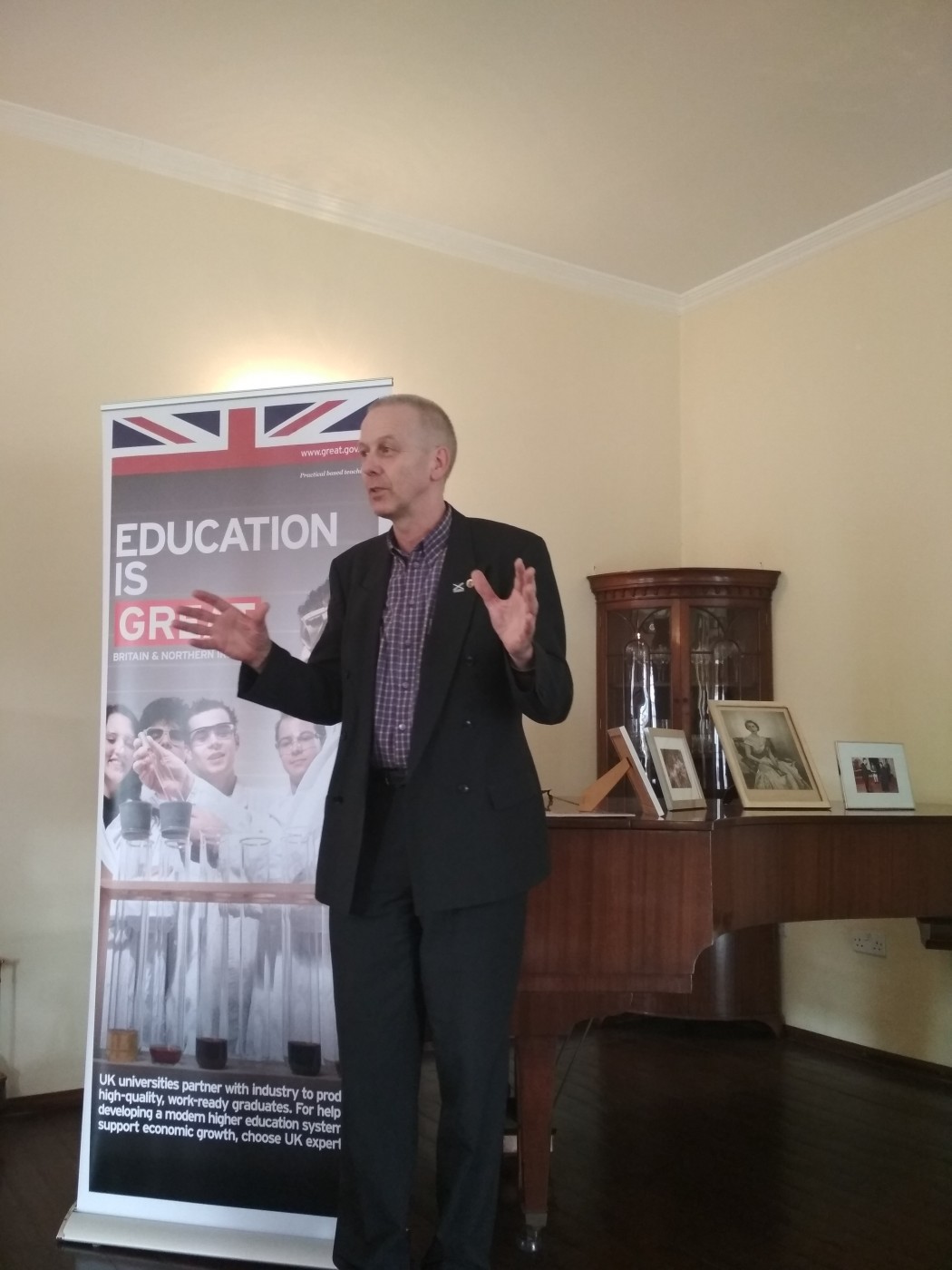 The British Ambassador to Nepal Richard Morris hosted the launch of a report of a market study of Nepal’s education sector today (28th February) in his Kathmandu Residence. The report was commissioned to help support UK service providers who are looking for education opportunities in Nepal. The Ambassador invited Bournemouth University’s Prof. Edwin van Teijlingen to highlight the UK’s expertise in research, as well as to share his own experience in UK-Nepal partnerships/ collaborations in education.
The British Ambassador to Nepal Richard Morris hosted the launch of a report of a market study of Nepal’s education sector today (28th February) in his Kathmandu Residence. The report was commissioned to help support UK service providers who are looking for education opportunities in Nepal. The Ambassador invited Bournemouth University’s Prof. Edwin van Teijlingen to highlight the UK’s expertise in research, as well as to share his own experience in UK-Nepal partnerships/ collaborations in education. 
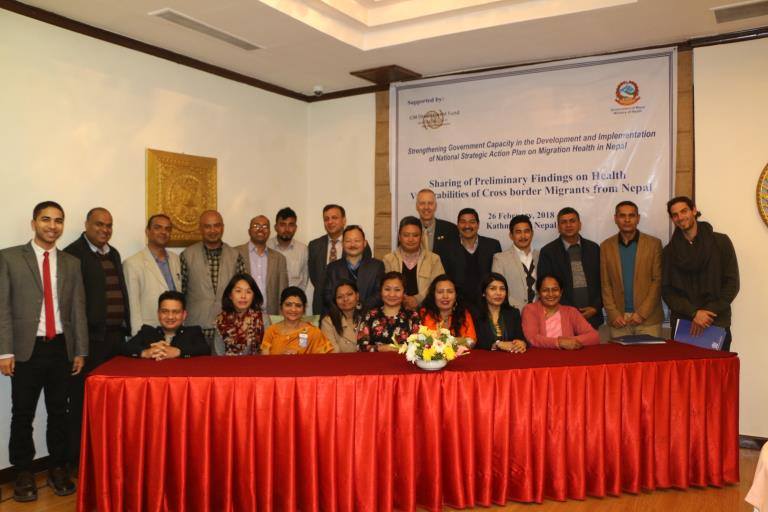

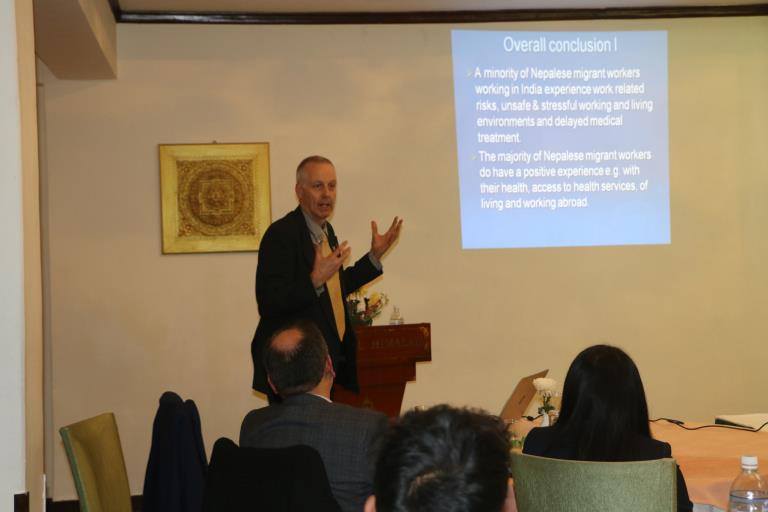
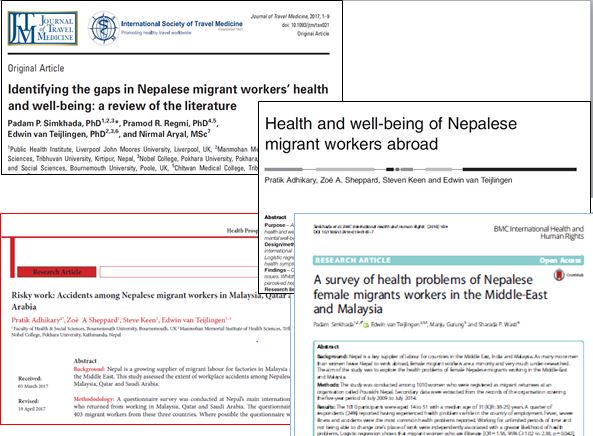
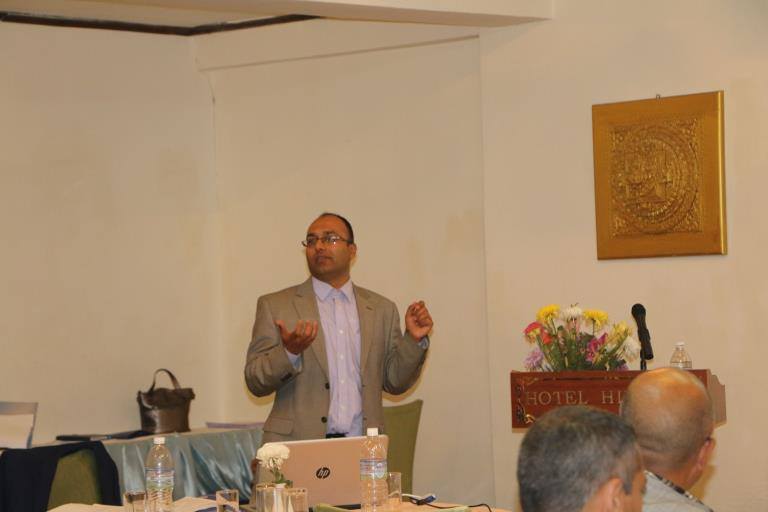
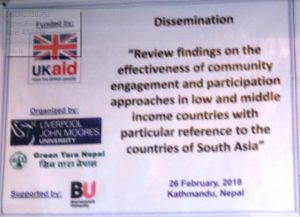
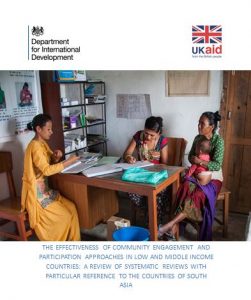

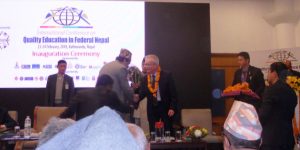
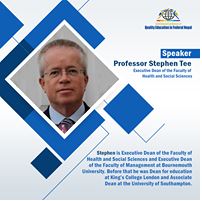
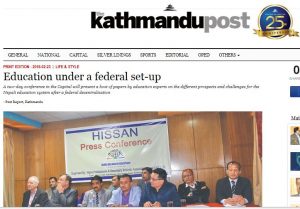
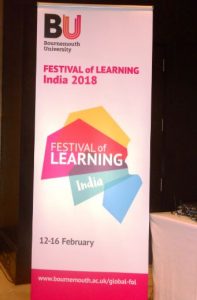
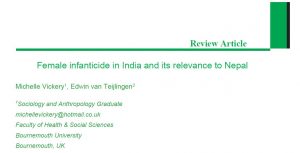
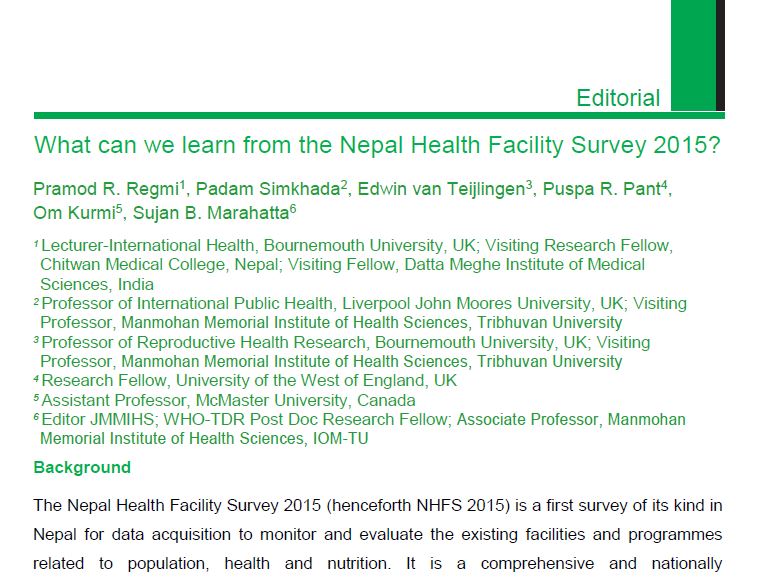
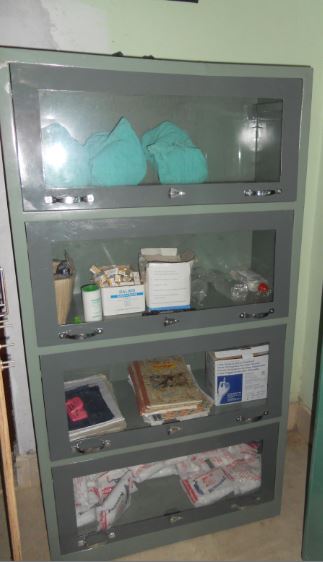

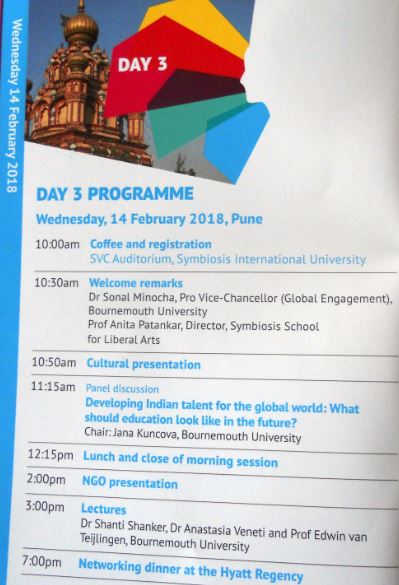
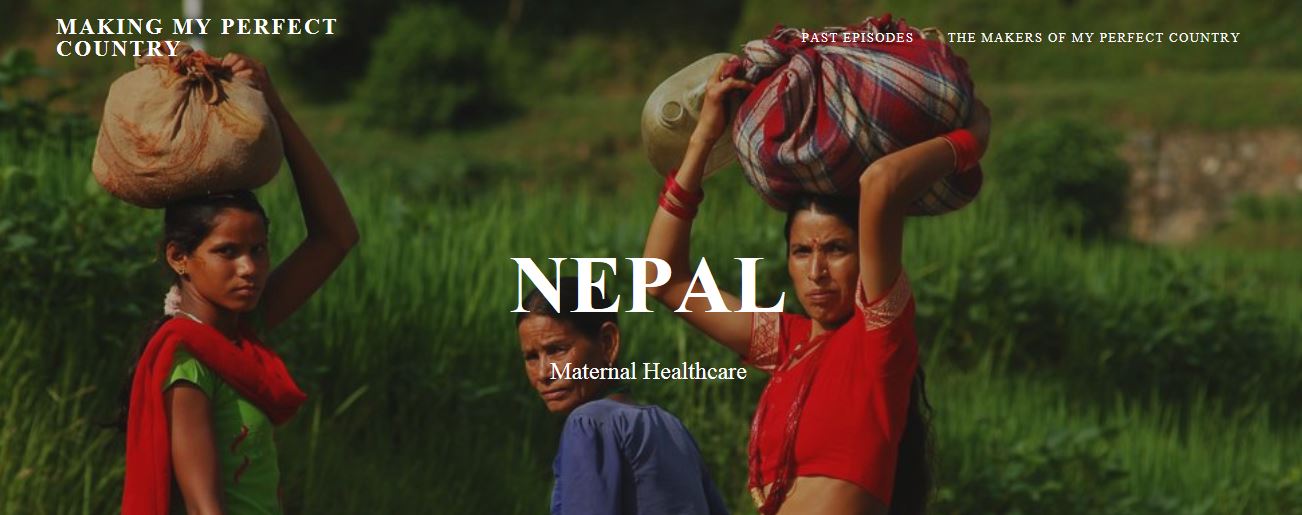

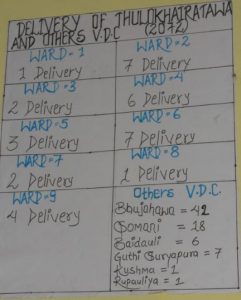


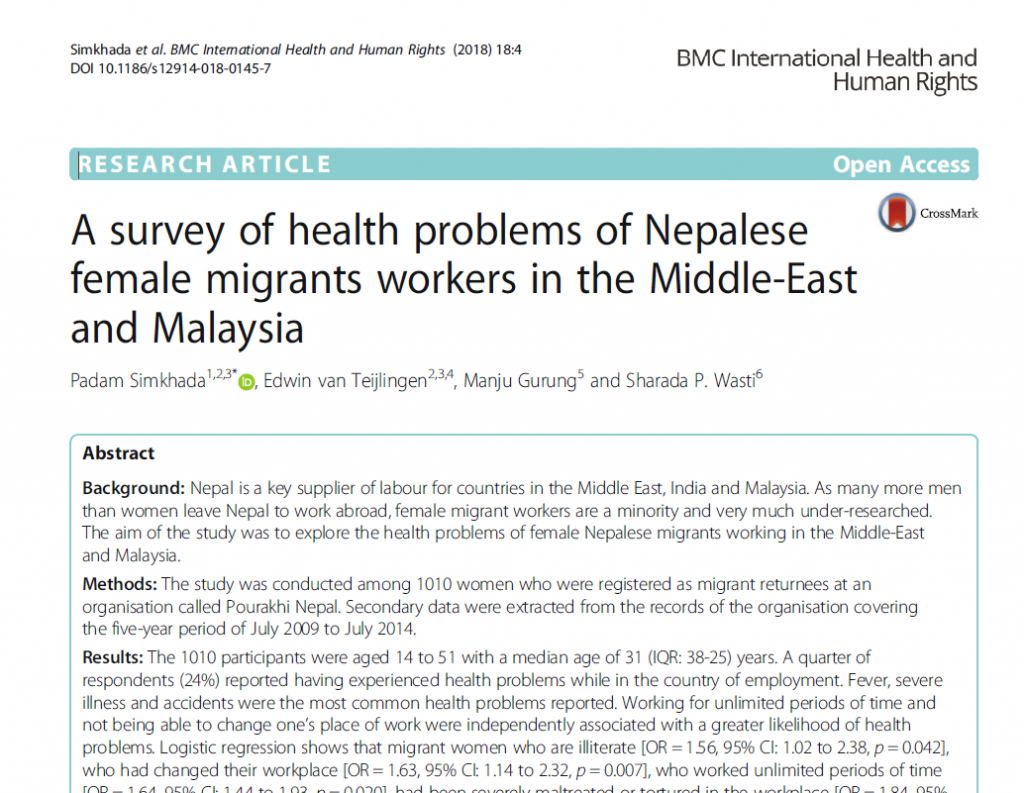


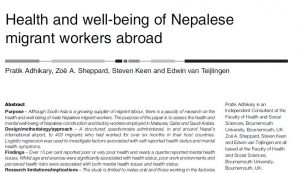
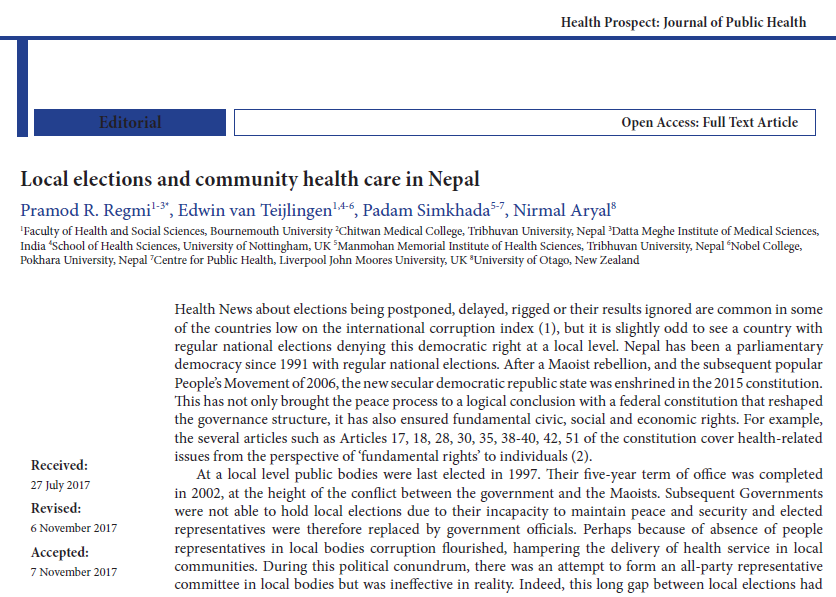
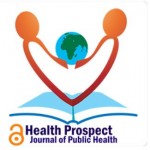


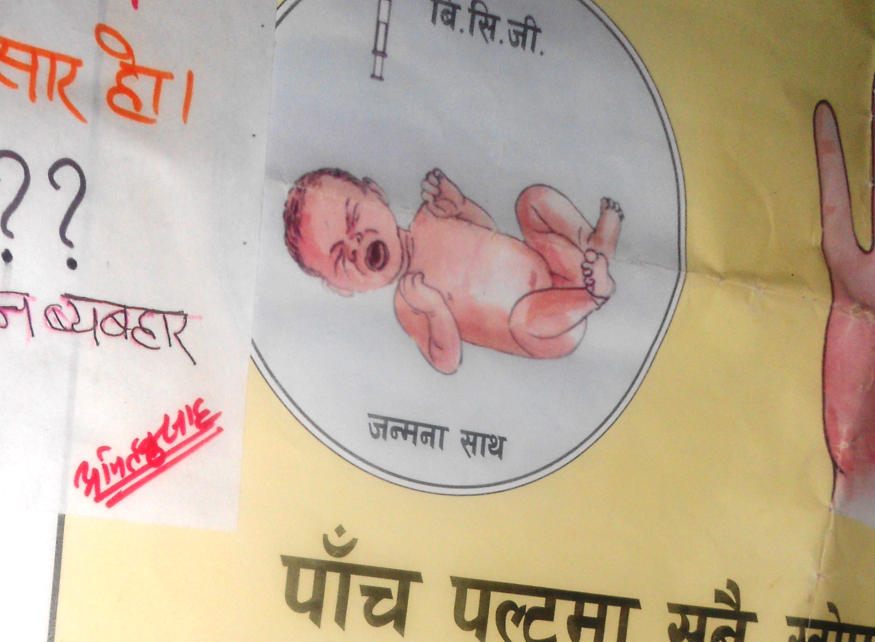













 Dr. Ashraf cited on ‘Modest Fashion’ in The Guardian
Dr. Ashraf cited on ‘Modest Fashion’ in The Guardian NIHR-funded research launches website
NIHR-funded research launches website Academics write for newspaper in Nepal
Academics write for newspaper in Nepal New paper published on disability in women & girls
New paper published on disability in women & girls MSCA Postdoctoral Fellowships 2025 Call
MSCA Postdoctoral Fellowships 2025 Call ERC Advanced Grant 2025 Webinar
ERC Advanced Grant 2025 Webinar Horizon Europe Work Programme 2025 Published
Horizon Europe Work Programme 2025 Published Horizon Europe 2025 Work Programme pre-Published
Horizon Europe 2025 Work Programme pre-Published Update on UKRO services
Update on UKRO services European research project exploring use of ‘virtual twins’ to better manage metabolic associated fatty liver disease
European research project exploring use of ‘virtual twins’ to better manage metabolic associated fatty liver disease